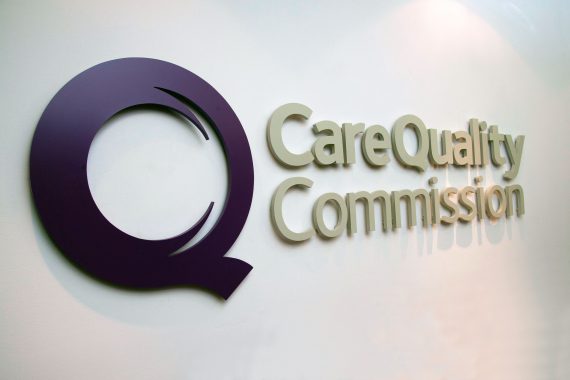GP practices set to ‘co-regulate’ themselves alongside the CQC

The CQC has said that it wants to move towards a new approach of ‘co-regulation’, which would prompt GP practices to provide evidence of their quality of care and face inspections less regularly as part of its new vision for inspections over the next five years.
The CQC’s ‘discussion paper’ published today, which outlines new regulatory proposals before a formal consultation next year, suggests practices which have been rated ‘good’ or ‘outstanding’ will be inspected less frequently – as previously mooted by Professor Steve Field.
Instead, the ‘co-regulation’ approach will encourage all providers to ‘develop their own systems and processes’ – so they can understand quality of care themselves.
Practices that have been inspected once under its new approach would be expected to share evidence of the standards of care they are delivering, and report on any changes to the quality of care since their last inspection.
In addition to this, the regulator claims it wants to develop ‘Intelligent Monitoring’ of providers, adding that further improvement of its data will allow it to ‘trigger action’ where concerns are raised, and ’target inspection resources where the risks to the public are greatest.’
The overall discussion paper outlines the CQC’s strategy on how it plans to develop the way it regulates providers from 2016 to 2021, so it can adapt to the emergence of new models of care.
The less regular inspections would allow it to target resources better towards providers that are at higher risk of not providing quality of care, the CQC claims.
Proposals to essentially scale back inspections once all practices have been inspected by moving to a more ‘responsive and tailored inspection model’ comes after the regulator recently conceded that it is likely its Government funding could be cut by 40%.
CQC board papers last week revealed that the practicality of the regulator delivering the its planned inspection model for 2016/17 was dependent on the outcome of the Government’s Spending Review next month.
However, the CQC also warned that there would be ‘implications’ should it be asked by the Government to consider a 40% reduction in its central funding.
David Behan, chief executive of the CQC, said: ‘Our last strategy created a more rigorous inspection approach that gives providers and the people who use services a deeper insight into the quality and safety of care. This is crucial to help people using services make informed choices and so that providers know where they need to improve.
’Our next strategy will set out the case for developing our approach – building on the strong foundations we now have in place.’
The CQC’s new discussion paper states: ‘We could move towards an approach of co-regulation, which would mean CQC supporting providers to assess and share evidence on their own quality of care against each of our key questions.
’We could explore this further for providers who have already been through a comprehensive inspection under our new approach and who could, using detailed key lines of enquiry, report on any changes to the quality of care provided since their previous inspection.
‘Co-regulation could encourage providers to develop their own systems and processes for understanding quality, which we know is an essential step in developing a culture of continuous improvement.
Following the publication of the CQC’s strategy paper today, it will publish a formal consultation on its proposals in January.









